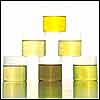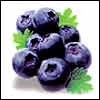|
Would
Jesus drive an SUV? The www reliably informs me that this is the
title of a sermon delivered by a certain Donel McClellan of the
First Congregational United Church of Christ, Washington in 2001
(Read it at http://fccbucc.pair.com/would_jesus_drive_an_suv.htm;
it's fun). Much like the theme of the sermon indicates, sports utility
vehicles are in a spot of bother in the US. Tree-hugging types complain
that they burn too much fuel. The greens have better fish to fry
in India (like cola companies).
In layspeak, utes (as they are known) are vehicles
with the comfort of a sedan, more space, and a bit of off-road attitude
to boot. The operative word is 'bit': You have to be close to insane
to take one on a cross-country excursion. Still, an ute is the ultimate
phallic symbol: tonnes of beefy car, big alloy wheels, large headlamps,
oversize tyres, and oodles of engine power that will never be used.
In India, you get to choose from Suzuki's Grand
Vitara XL-7, Hyundai's Terracan, Honda CRV and Chevrolet Forrester.
Each is priced between Rs 15 lakh and Rs 20 lakh. Only the Hyundai
has a diesel engine (a 2.9 litre one). This is competent, but it
doesn't make for the most exhilarating drive going. The firm says
it will soon supplement this engine with a 200 hp, 3.5 litre V6
one. That should help. Despite that, Terracan is the most muscular
ute available in the country today. This is a bare-chested monster
Tarzan would have picked. Honda CRV looks good, but falls a little
short on the machismo front. Methinks this is a muscled man with
a sexuality crisis. Still, its understatedness and price may appeal
to someone who wants to shop for groceries. Chevrolet Forrester
is the teenager of the pack. It is tech-savvy; its permanent all-wheel
drive forgives mistakes easily; and it boasts the same parentage
as the Subaru Impreza World Rally car. Downside: it looks like a
station-wagon on steroids.
Then, there's the Grand Vitara. I drove one
for a week and it's still showing in my fuel budget. The 2.7 litre
V6 engine guzzles gas, but has a nice deep-chested sound. This SUV
is also the only Euro-NCAP five-star rated vehicle in its class;
that means it is safe, very safe. And it is fast. The best thing
about an SUV is the seating position: way above ground, and far
higher than mere mortals in sedans. That's one reason women drivers
in India should consider these vehicles; on might-is-right Indian
roads an ute spells R-E-S-P-E-C-T.
-Kushan Mitra
The SUV
Test
5 questions that will test your SUV-ness
 How
rich are you? How
rich are you?
a. Own large industrial group
b. Have Rs 8 crore stashed in bank locker
c. Politician (enough said)
d. Can't afford a bus-ticket
Your off-road ability?
a. Participated in Paris-Dakar rally
b. Discovered tribes in inner Amazonia
c. Drove to the top of Matterhorn
d. Love urban canyons
Your idea of speed?
a. C = Speed of light
b. Mach 2
c. President of local Michael Schumacher fan club
d. Cycle-rickshaw races
Your environmental consciousness?
a. Own polluting industrial plant
b. Own rare mahogany furniture
c. Have (genuine) leopard-skin tights
d. Hugged a tree
What dog do you own?
a. Rottweiler
b. Labrador
c. German shepherd
d. Spitz
If you answered d) for any question go get yourself
one of those fancy-new Segway scooters
HEALTH
NOTES
Information Overkill: Oil

Quick, my attention span is a few lines
of text, which is the healthiest cooking oil going?
It has to be soybean. This has the ideal n6:n3
ratio. That's the ratio of omega six fats to omega three fats; understanding
the omega number in acids will require an advanced knowledge of
organic chemistry; suffice it to say that most people consume far
more omega six fats and far less omega three fats than they should.
Given that omega three fats have a host of benefits-they reduce
the risk of heart disease, cancer, and some immune-system disorders-this
isn't good. Soybean oil has an n6:n3 ratio of 7:1. "It lowers
both the total cholesterol and the low density lipoprotein (LDL)
levels, and is rich in phytoestrogens and isoflavones that inhibit
growth of breast cancer cells," says Dr. K. Srinath Reddy,
a professor of cardiology at New Delhi's All India Institute of
Medical Sciences.
I am a traditionalist and can't stand to
have my food cooked in anything but mustard oil. Is that alright?
The good news is that mustard oil is almost
as good as soybean oil. The bad news is that most Indian manufacturers
sell mustard oil that has a high level of erusic acid. That could
cause, or, at the least, accelerate the onset of cardiac ailments.
What's the PUFA:SFA ratio and should I worry
about this?
First things first: SFA stands for saturated
fatty acids and PUFA for poly unsaturated fatty acids. In the nature
of answers to the best Zen riddles, you should and you shouldn't.
The Americans were at the vanguard of the lets-move-to-PUFA wave.
They belonged there; Indians, however, have always consumed enough
vegetables and vegetable oils (the source of PUFA). And by aping
American diets we actually started consuming too much PUFA. With
an N6:N3 ratio around 130:1, PUFA oils should be had in moderation.
So, yes, focus on having enough (not more) PUFA, but as long as
you keep an eye on the n6:n3 ratio forget the PUFA:SFA one.
On the internet I came across reams of stuff
on how olive oil is good for health. Should I move to it?
If you can afford it-it isn't cheap, you know-yes.
Still, our advice to you would be to surf some more. The benefits
of olive oil may well be overstated. The New England Journal of
Medicine says that while a Mediterranean diet lowers risk of heart
attack and cancer, this is because of the diet as a whole. Ergo,
it isn't just the olive oil, but whole grains, nuts, fish, and fruits.
Last question. Heard of sesame oil?
Yes we have, and most people from South India
swear by it. This may well be the best medium for frying because
it has antioxidants (think of them as fat busters) that don't break
down at high temperatures. Still, this oil is high in omega six
fats, so exclusive use isn't recommended. Actually, that's true
of all oils. Mix-and-match is the way to be.
-Payal Sethi
HEALTH
SNIPPETS
 NUTS-N-BOLTS
SOLUTION NUTS-N-BOLTS
SOLUTION
Fish and fish oil, we all know, reduce the risk of heart disease.
Do you know that nuts do more? Nuts such as almonds, peanuts, and
pistachios are high in unsaturated fatty acids, fibre, vitamin E,
and magnesium. An Adventist Health study shows that the incidence
of heart disease goes down by upto 60 per cent in those people who
consume nuts everyday.
 THE
BLUES HAVE IT THE
BLUES HAVE IT
Goodbye botox. Hello blueberry pie. Blueberries could well be the
miracle cure for ageing. Nicholas V. Perricone, a dermatologist
who is professor of medicine at Michigan State University, claims
blueberries, strawberries, cranberries, and raspberries are loaded
with antioxidants that save cells from premature ageing.
|
